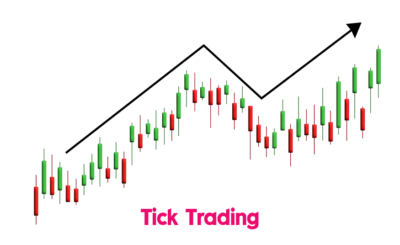In the highly dynamic and ever-evolving world of financial markets, volatility is a double-edged sword that demands constant attention and vigilance from traders. While it can lead to substantial losses, it also presents valuable opportunities for astute and discerning traders to capitalise on and maximise potential returns.
This fact holds especially true in Singapore’s vibrant and bustling financial hub, where the right strategy and keen market insights can transform market volatility from a potential threat into a lucrative and rewarding opportunity. With its robust financial infrastructure, advanced technological advancements, and diverse financial instruments, Singapore offers a fertile ground for traders to confidently navigate the ups and downs of the market.
Traders who possess the necessary skills, knowledge, and adaptability can harness the power of market volatility to shape the future of their financial endeavours. Through careful analysis, risk management, and the ability to identify emerging trends, traders can leverage market movements to their advantage.
By staying abreast of global economic developments and financial news and utilising cutting-edge trading tools, traders in Singapore can position themselves strategically to capitalise on market fluctuations. The possibilities are vast for identifying undervalued stocks, exploiting arbitrage opportunities, or utilising sophisticated trading algorithms.
In essence, market volatility in Singapore’s financial landscape is not merely a challenge to be feared but an opportunity waiting to be seized. With the right mindset, skills, and a comprehensive understanding of the market, traders can navigate the ever-changing financial landscape and turn volatility into a profitable venture that shapes their financial future.
Advanced trading strategies for market volatility
Here are some of the advanced trading strategies that traders in Singapore can employ to capitalise on market volatility:
Momentum trading strategies
Momentum trading, also known as ‘trend following,’ involves capitalising on established trends and leveraging them to turn a profit. It is one of the most popular strategies traders use, who take advantage of rising (or falling) prices to buy (or sell) a security in the short term. Momentum traders look for opportunities to enter the market and capitalise on temporary price swings while minimising risk by reducing their exposure when potential losses seem likely.
Arbitrage strategies
Arbitrage strategies involve taking advantage of pricing discrepancies between two or more markets to gain a profit without any market risk. It is achieved by simultaneously buying or selling a security on one market and taking an offsetting position in another, exploiting the discrepancy between two prices to capture gain. It is important to note that these opportunities are relatively rare due to the efficient nature of modern markets.
Mean reversion strategies
Mean reversion strategies involve calculating the average price of a security over some time and then trading when the current price deviates too far from this average. This strategy involves entering long positions when the price is lower than the average or shorting when the price is higher, with traders hoping to capture profits as prices revert toward their mean.
Long and short equity strategy
A standard approach to market volatility is the long/short equity strategy. It involves buying undervalued stocks (long positions) and selling overvalued ones (short positions) to capitalise on market volatility. This trading strategy dramatically reduces the risk associated with volatile markets while actively pursuing returns through active trading. It’s important to note that short-selling stocks come with risks and require a deep understanding of current market conditions before engaging in them.
Leveraged ETFs
Leveraged Exchange Traded Funds or ETFs use debt and financial derivatives to increase the returns of an index. While leveraged ETFs come with substantial risks due to their speculative nature, they can be an effective way for traders to capitalise on the volatility of the financial markets. It should be noted that leveraged ETFs are unsuitable for long-term investments and require a thorough understanding of the associated risks before investing in them.
Navigating the risks of volatile markets
Understanding the risks associated with each trading strategy is paramount, as it is just as crucial as comprehending the potential gains. In this section, we will delve into the potential pitfalls of each strategy, offering practical advice on navigating the risks associated with volatile markets effectively. By gaining a more profound and thorough understanding of the intricacies and potential challenges of trading forex in Singapore, you will be better equipped to make informed decisions and mitigate potential risks, ultimately increasing your chances of success in the dynamic trading world.
With that said
There is no silver bullet regarding trading strategies for market volatility. Every trader will have a distinct approach that fits their goals, risk appetite, and trading style. Ultimately it is up to the trader to determine which strategy best suits their needs. By thoroughly understanding the various strategies available, traders in Singapore can capitalise on market volatility and transform potential losses into lucrative gains.
Whether one opts for momentum trading strategies, arbitrage opportunities, or leveraged ETFs, staying informed and up-to-date with the latest market insights is crucial to success. By combining sound risk management principles with a deep understanding of the markets, traders in Singapore can make the most out of their trading endeavours and build a portfolio that will stand the test of time.









